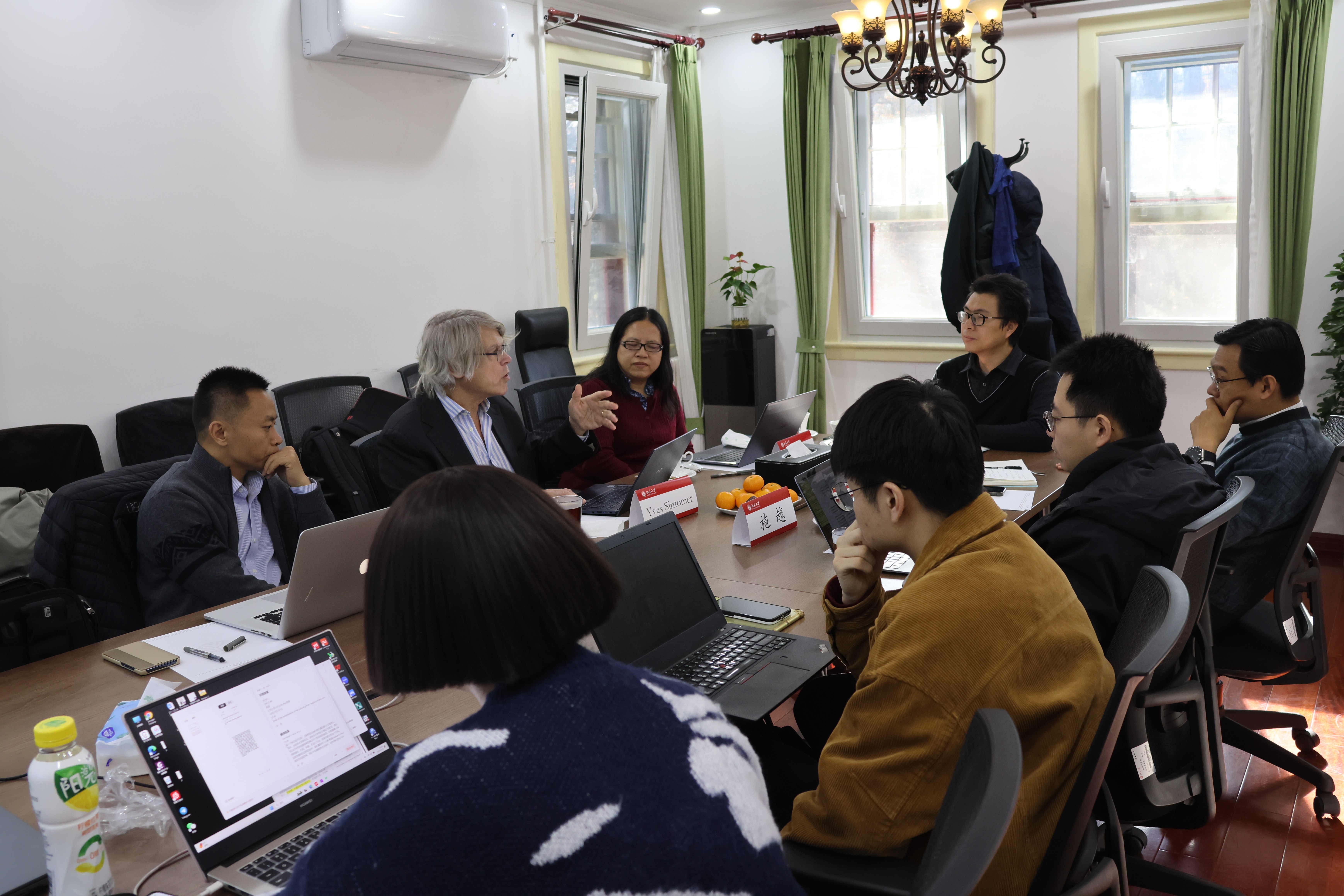
The 14th lecture of the “Adventus Amicorum” salon series was held by the Institute of Area Studies, Peking University (PKUIAS), on November 27, 2023. Yves Sintomer, a renowned French professor of political science who is the vice president of the University of Paris VIII, an adjunct professor at the University of Oxford, and a visiting professor at Harvard University and Yale University, gave a lecture titled, “Why are Western political systems in crisis, and are they resilient?” The seminar was moderated by Zhang Yongle, deputy director of PKUIAS. Other participants included Prof. Zan Tao, deputy director of PKUIAS; Wei Nanzhi, a research fellow at the Institute of American Studies, Chinese Academy of Social Sciences; Ou Shujun, associate professor of the Department of Political Science at the School of International Studies, Renmin University; and Shi Yue, assistant professor at the School of Foreign Languages of PKU. The event was co-organized by PKUIAS and the Institute of American Studies of the Chinese Academy of Social Sciences.
First, Prof. Sintomer recalled Francis Fukuyama’s concept of the ‘end of history’. He pointed out that Fukuyama’s judgment on the end of history was striking in emphasizing that the West had already won the institutional battle and that there was essentially no room for further improvement. Sintomer argued that Fukuyama’s judgment was a fundamental misunderstanding, that it was wrong to think that modernization and political modernization had only one path in history, and that every country should follow Europe and the US.
Second, Prof. Sintomer argued that the current crisis facing Western democracies was structural rather than temporary. Per Sintomer, the neo-liberalism that had emerged since the 1970s, both in Europe and North America, had become illiberal, while financial capitalism was a threat to democracy and the welfare state.
Prof. Sintomer identified four scenarios of where democratic politics might go in the future. Per Sintomer, the first was a scenario in which liberal democracy retained its original vitality under the current system in Western countries and capitalism was re-regulated both within countries and at a global level. However, the poor functioning of representative democracy and the rapid changes in social reality made this possibility impractical. The second was the so-called “post-democracy” scenario, in which electoral politics became a show and the decisions regarding power-sharing were made by technocrats. The third scenario was the development of a situation in which democratic politics started to trend toward authoritarianism and there was a rise of right-wing populism and a realization of democracy only in a formal sense. The fourth scenario, which Sintomer referred to as “Democracy 3.0”, involved the creation of a new, ecological model of development that tamed financial capitalism, markets and technocrats.
Following Prof. Sintomer’s lecture, the participating scholars had a lively discussion on the problems of Western democratic political systems and their implications for China. Prof. Zan Tao emphasized the concern for the common people and used a historical perspective to relook at the established stereotypes of state and society types. Prof. Ou Shujun exchanged views with Prof. Sintomer on the conflict of values between generations in Europe, the reasons for the crisis of democracy, and its possible future direction. Prof. Shi Yue, on the other hand, brought concepts such as “the way of politics” into the discussion, focusing on political interactions and the construction of order at the international level, as well as the rediscovery of the Chinese case. Finally, Prof. Zhang Yongle responded to Sintomer’s lecture from three levels—domestic, interstate, and transnational—and proposed a framework for understanding binary identities. After the seminar, the participating scholars had more in-depth exchanges on related issues.


